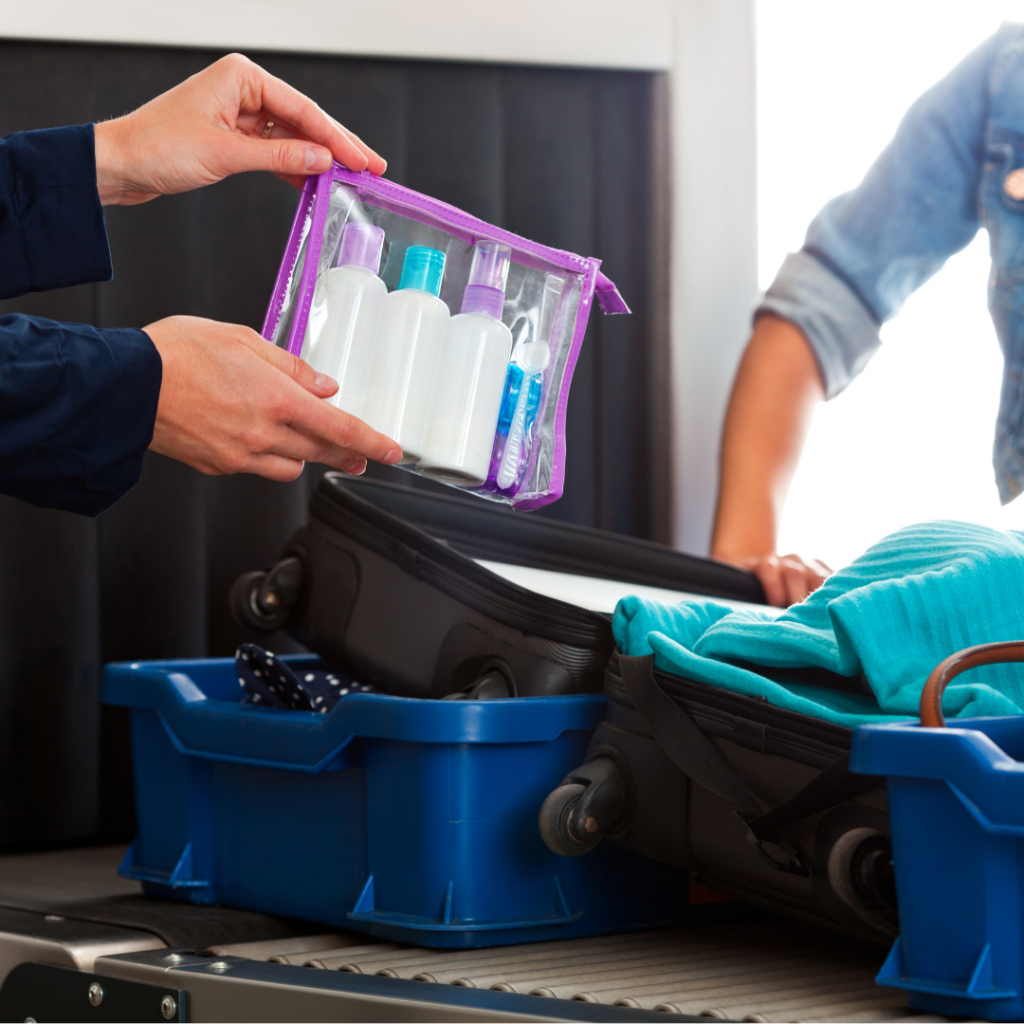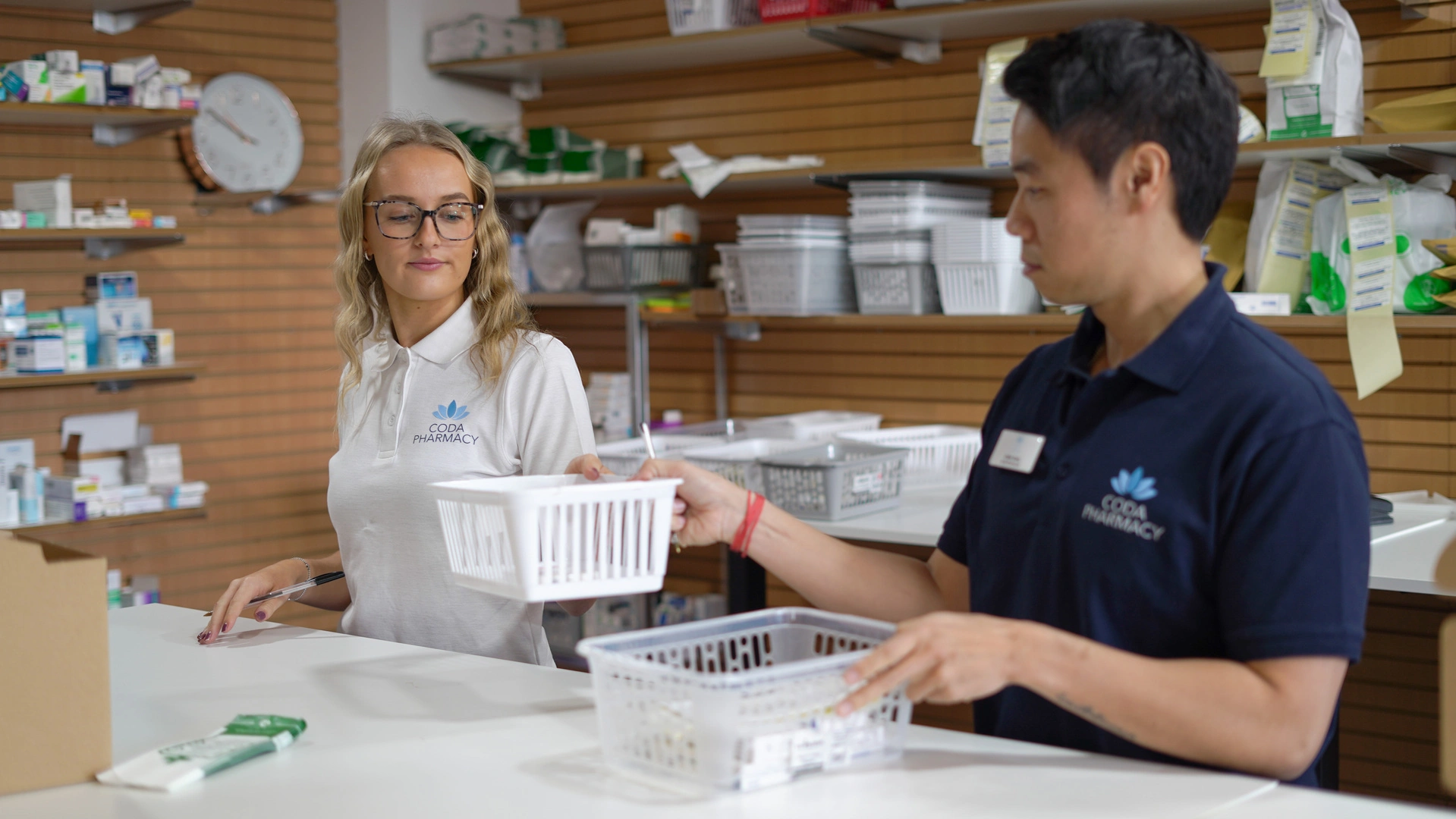Heading abroad soon? If you’re taking prescribed medication, there’s a bit more to think about before you pack your bags. From making sure you have enough supply to checking travel rules for your medicine, planning ahead can help you avoid any unnecessary stress while you’re away. In this blog we will cover everything you need to know so you can enjoy your trip, stress free!
First things first, can you take medication abroad? Yes, you absolutely can. However, it’s important to know which medications you can take in your hand luggage, how it works with controlled drugs, what needs to be in your checked baggage and which medications are restricted in other countries.
What medication can I take in my hand luggage?
You can generally take most medications in your hand luggage, including liquids, tablets, and capsules. However, liquids over 100ml require a prescription or doctor’s letter to show proof they are for personal use. Ensure medication is in its original container and labeled correctly, and consider packing a copy of your prescription.
- Tablets and Capsules: Allowed in any quantity, no restrictions.
- Essential Liquid Medicines: Allowed, but liquids over 100ml require proof of prescription or doctor’s letter.
- Inhalers: Allowed.
- Hypodermic Syringes: Allowed.
- Special Food and Liquids: Allowed, with proof of medical need if over 100ml.
- Cooling Gel Packs: Allowed.
- Medical Equipment: Allowed, but may require prior notification to the airline and potentially a letter from a medical professional.
Everything you need to know about controlled drugs
First of all you must check with your pharmacists or GP if any of your current medication contains controlled drugs.
When travelling with controlled drugs, it is essential to keep them in your hand luggage at all times when entering or leaving the UK. This is to ensure the medication is readily accessible and to comply with security regulations.
You must be prepared to provide proof that the medication belongs to you, which can be demonstrated by carrying a valid prescription or a letter from your doctor. The documentation should clearly state your name, the name of the medication, the dosage, and the purpose of the treatment.
Additionally, it is advisable to keep the medication in its original packaging with the pharmacy label intact to avoid any confusion or delays during security checks. Always check the regulations of the destination country beforehand, as controlled drug rules may vary internationally.
What medication can I take in my checked bagage?
Any remaining medication can be taken in your checked baggage but please note the same rules apply regarding it being in its original container, labeled correctly and evidence of the prescription/ a letter from your doctor. It is strongly recommended that any essential medication is put in your hand luggage while travelling.
With regards to how much medication you should take on holiday with you, if you are carrying more than three months’ worth, you will need to apply for a personal license. You can find out more about obtaining a personal license from the Home Office and we recommend allowing plenty of time for it to be processed prior to your departure date.
Can I bring medicine I was prescribed abroad home with me?
If you’re a UK resident who has been prescribed medicine while you were abroad, you need to contact the Drug and Firearms Licensing Unit (DFLU).
If you’re not a UK resident, you will need to carry a letter of proof that the medicine was prescribed for you.
The letter must include:
- your name
- the dates you are travelling to or from the UK
- a list of your medicine, including how much you have, doses and the strength
- the signature of the person who prescribed your drugs
You can only bring up to 3 months supply of your medicine with you.
What medication is restricted in other countries?
Some medications that are restricted or banned in other countries from the UK include controlled drugs like opioid painkillers, antidepressants, and ADHD medications. Additionally, certain over-the-counter antihistamines containing pseudoephedrine can be problematic due to their use in making illegal substances. Some countries also have restrictions on medications containing high doses of vitamin A or certain ingredients like codeine and tramadol.
It’s crucial to check the specific regulations of the country you are traveling to before bringing any medications, as laws vary significantly. If you are unsure about the legality of a medication in a particular country, it’s best to consult with the embassy or consulate of that country before traveling.
Frequently Asked Questions
Do I need to declare my medication when flying? Yes, you may need to declare your medication when flying, particularly if it contains controlled drugs or is in a liquid form exceeding 100ml.
Do you have to take medication out of your bag at airport security? Yes, at airport security, you may need to remove your medication from your bag, particularly if it’s in liquid form or in a container larger than 100ml.
Can I bring my inhaler on a plane? Yes, you can bring your inhaler on a plane.
Can I take paracetamol on a plane? Yes, you can usually carry paracetamol on a plane, both in your carry-on and checked luggage, as it’s typically considered a safe and permissible medication.
For more information on how to keep your health in check during your travels, visit our health hub
Visit our socials for more health tips and to keep up to date with us!
Coda Pharmacy is here to support you every step of the way. From offering expert advice to delivering your NHS prescriptions free of charge. If you have any questions about what you have read in this article or any of the services that Coda Pharmacy can provide you with, please do not hesitate to reach out and contact us here.



